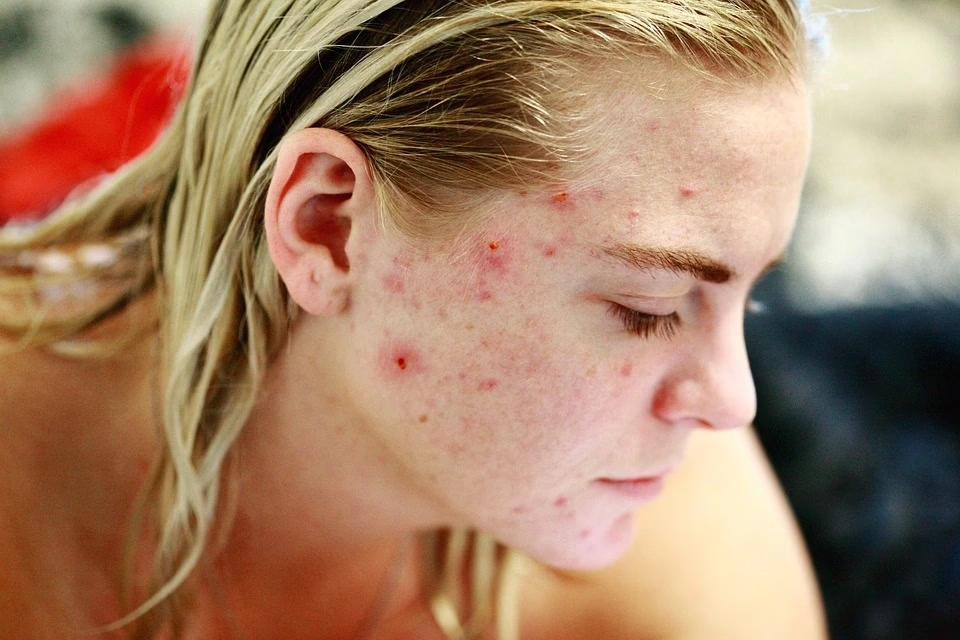Is Niacinamide Good for Acne-Prone Skin?
Acne is a common skin condition that affects millions of people worldwide, often leaving them searching for the best treatments and skincare ingredients. Among the plethora of options available, niacinamide has emerged as a standout ingredient. This vitamin B3 derivative is praised for its multifaceted benefits and is now a popular inclusion in many skincare formulations. But is niacinamide truly effective for acne-prone skin? Let’s dive deep into what niacinamide is, how it works, and why it might be a game-changer for those struggling with acne.
What is Niacinamide?
Niacinamide, also known as nicotinamide, is a water-soluble form of vitamin B3. It is an essential nutrient that plays a crucial role in maintaining healthy skin. Unlike niacin, another form of vitamin B3, niacinamide does not cause flushing when applied to the skin or consumed orally. Its versatility makes it a star ingredient in skincare products, offering benefits ranging from hydration to anti-aging and, most notably, acne control.
The Science Behind Niacinamide’s Effectiveness
Anti-Inflammatory Properties
One of the key reasons niacinamide is effective for acne-prone skin is its powerful anti-inflammatory properties. Acne is primarily an inflammatory condition, and niacinamide helps reduce redness, swelling, and irritation. This makes it particularly beneficial for inflammatory acne types, such as papules and pustules.
Sebum Regulation
Excess oil production is a major contributor to acne. Niacinamide helps regulate sebum production, reducing the likelihood of clogged pores and subsequent breakouts. Unlike harsh astringents that strip the skin of its natural oils, niacinamide maintains the skin’s balance, ensuring it remains hydrated and healthy.
Strengthening the Skin Barrier
A compromised skin barrier can exacerbate acne by allowing bacteria and irritants to penetrate the skin. Niacinamide boosts the production of ceramides, which are essential for a healthy skin barrier. This reinforces the skin’s defense mechanisms, reducing sensitivity and the risk of acne flare-ups.
Reducing Hyperpigmentation
Post-inflammatory hyperpigmentation (PIH) is a common concern for those with acne. Niacinamide inhibits melanin transfer within the skin, helping to fade dark spots and even out skin tone over time. This makes it a valuable addition to the skincare routine of individuals dealing with acne scars.
Antioxidant Benefits
Niacinamide acts as an antioxidant, combating free radicals that can damage skin cells and exacerbate acne. By neutralizing these harmful molecules, niacinamide promotes healthier skin overall.
Also read: What Does Niacinamide Do for Your Skin?
Clinical Evidence Supporting Niacinamide for Acne
Numerous studies have demonstrated niacinamide’s efficacy in treating acne and improving skin health:
- A 4% Niacinamide Gel vs. 1% Clindamycin Gel: A study published in the International Journal of Dermatology compared the efficacy of a 4% niacinamide gel with a 1% clindamycin gel in treating acne. The results showed that niacinamide was equally effective as clindamycin, a commonly prescribed topical antibiotic, but without the risk of antibiotic resistance.
- Improvement in Skin Texture and Appearance: Research has also highlighted niacinamide’s ability to improve skin texture and reduce the appearance of enlarged pores, which are common issues for those with acne-prone skin.
- Anti-Inflammatory Effects: Another study confirmed that niacinamide significantly reduced inflammation and redness in acne patients, highlighting its role as a soothing agent.
How to Incorporate Niacinamide Into Your Skincare Routine
Choose the Right Concentration
Niacinamide products typically come in concentrations ranging from 2% to 10%. For acne-prone skin, starting with a 4% to 5% concentration is recommended. Higher concentrations can be effective but may cause irritation for some individuals, especially those with sensitive skin.
Pairing with Other Ingredients
Niacinamide is a versatile ingredient that pairs well with most other skincare actives. Some beneficial combinations include:
- Niacinamide and Salicylic Acid: While niacinamide soothes and strengthens the skin, salicylic acid exfoliates and unclogs pores, creating a balanced approach to acne treatment.
- Niacinamide and Retinol: Niacinamide’s anti-inflammatory properties can counteract the potential irritation caused by retinol, making it a great preparatory or complementary ingredient.
- Niacinamide and Hyaluronic Acid: Together, these ingredients provide hydration and barrier support, essential for maintaining healthy skin.
Application Tips
- Cleanse your face thoroughly before applying niacinamide.
- Use a toner to prepare your skin and enhance absorption.
- Apply a niacinamide serum or moisturizer, focusing on areas prone to acne.
- Follow with sunscreen in the morning, as UV exposure can worsen acne and hyperpigmentation.
Also read: Get Naturally Rosy Cheeks with This Easy Beetroot Tint DIY
Potential Side Effects
While niacinamide is generally well-tolerated, it’s important to note the following:
- Initial Purging: Some individuals may experience a brief purging phase when starting niacinamide, during which acne may temporarily worsen. This is a normal part of skin adjustment.
- Irritation: In rare cases, high concentrations of niacinamide can cause redness or irritation. If this occurs, reduce the frequency of use or opt for a lower concentration.
- Allergic Reactions: Conduct a patch test before applying niacinamide products to your face to ensure you’re not allergic.
Choosing the Right Niacinamide Product
With countless niacinamide products on the market, finding the right one can be overwhelming. Here are some top considerations:
- Serums: These are highly concentrated and ideal for targeted treatment. Look for lightweight, non-comedogenic formulas.
- Moisturizers: If you prefer a simpler routine, opt for a niacinamide-infused moisturizer that combines hydration with acne-fighting benefits.
- Toners: Niacinamide toners are excellent for preparing the skin and boosting the efficacy of subsequent products.
The Verdict: Is Niacinamide Good for Acne-Prone Skin?
The evidence strongly supports the use of niacinamide for acne-prone skin. Its ability to reduce inflammation, regulate oil production, strengthen the skin barrier, and address post-acne marks makes it a powerhouse ingredient. Moreover, its compatibility with other skincare actives allows for a customizable approach to acne treatment.
If you’re struggling with acne, incorporating niacinamide into your routine is a safe, effective, and science-backed choice. However, as with any skincare ingredient, consistency is key. It may take several weeks to see noticeable improvements, so patience is essential.
Finally, while niacinamide is a valuable tool in the fight against acne, it’s not a standalone solution. A holistic skincare routine, tailored to your specific needs, will yield the best results. Always consult a dermatologist for personalized advice, especially if you have severe or persistent acne. With the right approach, niacinamide could be the secret to clearer, healthier skin.
Support us by purchasing from our Affiliate Links:
Foxtale 12% Niacinamide Face Serum with Azelaic Acid | Reduces Acne, Blemishes & Acne Marks
Foxtale 5% Niacinamide Face Serum | Fades Blemishes & Acne Marks | Reduce Dark Spots



Trackbacks/Pingbacks